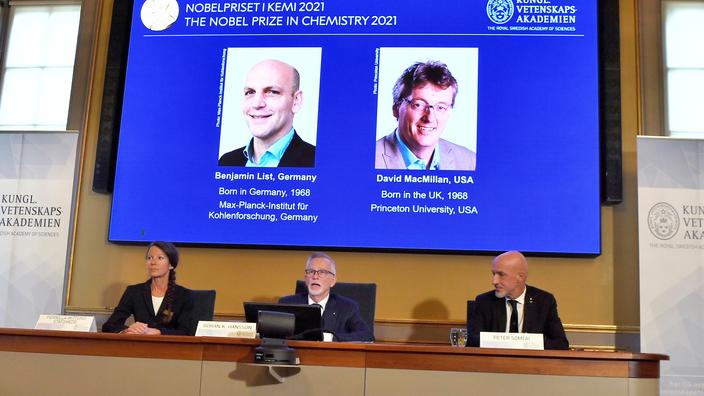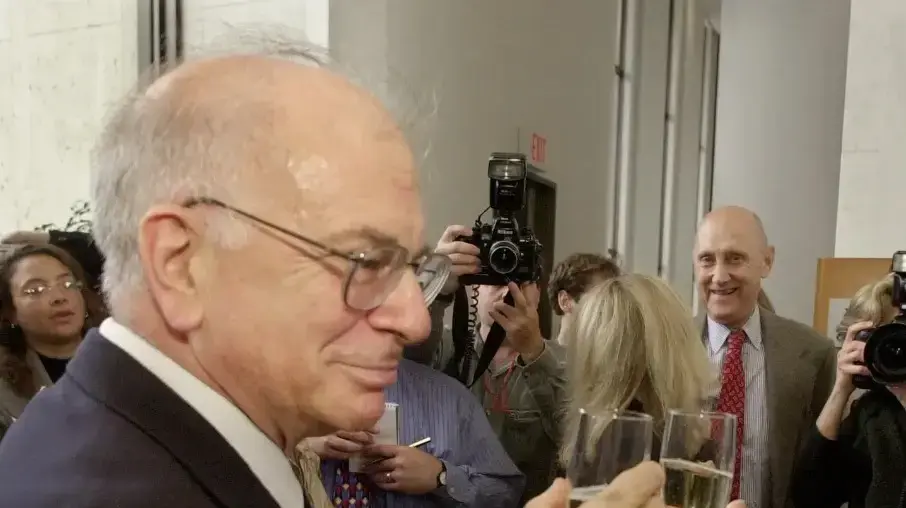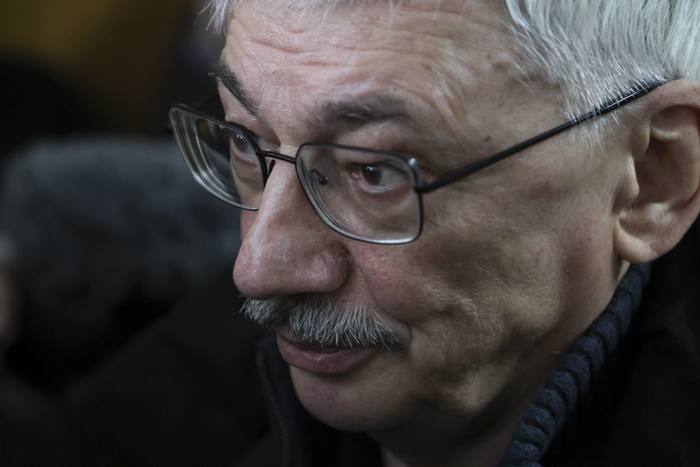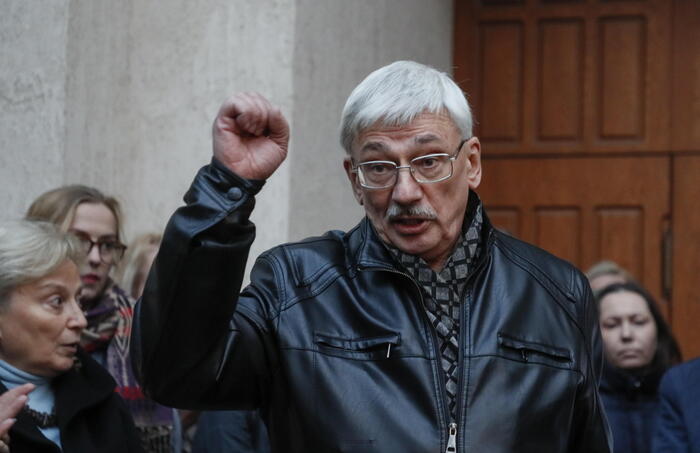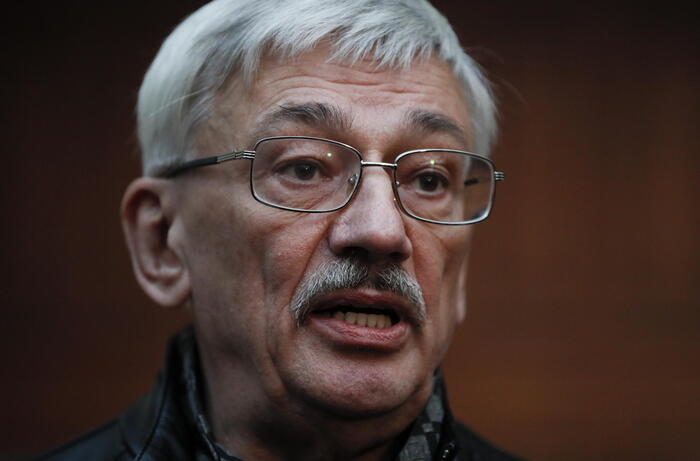The Nobel Prize for chemistry crowned Wednesday, October 6 the German Benjamin List and the researcher based in the United States David MacMillan for having invented a new way of manufacturing molecules, especially in the pharmaceutical field, at a lower cost and in a cleaner way .
To discover
Covid-19: the third vaccine dose, instructions for use
Read alsoThe Nobel Prize for Medicine rewards discoveries related to the sense of touch
The two researchers, both aged 53, were awarded for having developed asymmetric catalysis (or organocatalysis) in 2000.
A new type of catalyst that has since developed "
at a tremendous speed
" similar to a "
gold rush
", explained the Nobel jury.
Catalysts are substances that control and accelerate chemical reactions, without being part of the final product.
They are fundamental for chemists who have long believed that there were, in principle, only two types of catalyst available: metals and enzymes.
A simple and inexpensive molecule
Independently of each other, List, based in the Ruhr region of Germany, and MacMillan, born in Scotland but based in the United States, have developed a third method, using "
small organic molecules
" like proline. Unlike metals and enzymes, proline is a “
dream
”
tool
for chemists: it is a very simple, inexpensive and environmentally friendly molecule. “
This is a game-changer because it gives us a new tool,
” said Academy of Sciences member Peter Somfai.
Thanks to organocatalysis, pharmacy researchers can now manufacture large volumes of different molecules in a relatively simple way, for example by manufacturing them artificially instead of isolating them in small quantities from rare plants, for example.
To read also Chemistry-Pharmacy: Bayer pays up to 4 billion dollars for the American Askbio
"
It's a huge surprise,
" reacted Benjamin List, contacted by phone by the Nobel Foundation.
“
I thought someone was playing a joke on me.
I ate breakfast with my wife.
Usually she says to me “check your phone if someone calls from Sweden”, but today she was not joking,
”said the German researcher from the Max-Planck Institute.
"
And when Sweden does appear on the phone (...) it's a very special moment that I will never forget
," he said.
Lots of potential nominees
The breakthroughs in DNA sequencing, nanocrystals, "
chemistry-click
", the feats allowed by supermaterials called metallo-organic networks (MOF) or the pioneers of messenger RNA vaccines against Covid were among the speculations for This year. Even if the secrecy is carefully maintained by the Nobel committees, which do not reveal any of the nominations. The specialized organization Clarivate, which maintains a list of scientific nobelisables, had identified more than 70 researchers who could, according to it, claim a prize in chemistry given the thousands of citations they are the subject of in the scientific literature.
Last year, the chemistry prize was awarded to Frenchwoman Emmanuelle Charpentier and American Jennifer Doudna, two geneticists who have developed "
scissors
" capable of modifying human genes, a revolutionary breakthrough.
Covid obliges, the winners will receive their prizes like last year in their country of residence, even if there is little hope for the peace prize in Oslo.

